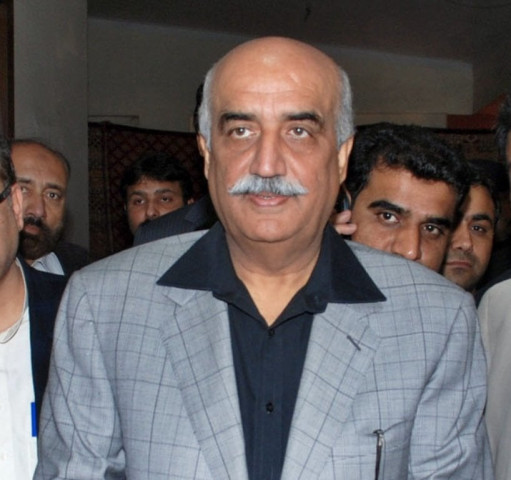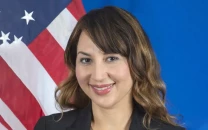Due process: PAC questions privatisation without a policy
PC does not have the capacity to carry out such an exercise, says secretary.

PAC is not against the government’s privatisation plan as its only concern is to protect national interest, says PAC chairman Syed Khursheed Shah. PHOTO: RIAZ AHMED/EXPRESS/FILE
The Public Accounts Committee (PAC) on Tuesday showed apprehensions over the government’s move to sell 65 state-owned enterprises without even having a privatisation policy, exposing ill-planning that could cast doubts over the process.
PAC is not against the government’s privatisation plan as its only concern is to protect national interest, said Syed Khursheed Shah of Pakistan Peoples Party, who is chairman of PAC.
Shah said without a privatisation policy, how could the performance of the government and the Privatisation Commission (PC) be judged.
PAC had called Secretary Privatisation Amjad Ali Khan to brief the parliament’s accountability arm about the government’s privatisation plan. It termed the briefing unsatisfactory and sought more details from the government.

The issue of the privatisation policy was raised by the Auditor General of Pakistan Akhtar Buland Rana. But the secretary privatisation could not share the government’s privatisation policy.
“For us the Privatisation Ordinance (2000) is a Bible,” said Khan. However, PAC did not accept his reply.
Shah observed that the ordinance only provides the roadmap and is not a substitute for a policy.
To the dismay of the members, the secretary also admitted that the PC did not have the capacity to undertake the huge privatisation programme. Against 22 consultants that the PC had four years back, according to Khan, at present only six remained.
One of the reasons for the lack of capacity was that in the last five years the PC had become a dysfunctional body, he added.

Khan said the PC has entered into negotiations with some international financial institutions and was considering seeking $30 million in technical assistance to strengthen an institution that will undertake the most ambitious privatisation programme.
To reduce losses, increase receipts and reduce the government’s footprints, the PML-N government has committed to the International Monetary Fund to privatise 32 shortlisted entities in the next two years. These entities have been chosen out of 65 that have been cleared by the Council of Common Interests for privatisation.
PAC did not pass any adverse judgment against the government’s plan to sell state-owned entities. However, it recommended that non-profitable entities should be privatised first followed by profitable bodies.
PAC rejected a proposal to bar the government from privatising profitable entities. The proposal was floated by Sardar Ashiq Hussain Gopang of the PML-N. Shafqat Mahmood of Pakistan Tehreek-e-Insaf supported the government’s privatisation plan.
PAC members also questioned the capacity of the PC to achieve its objectives. The secretary admitted that the PC did not have the capacity to develop regulatory regimes to protect genuine interests of investors, consumers, taxpayers and the government.
He said the PC cannot act as a catalyst to attracting investment and liberating the government from micro management of the state-owned enterprises.
“What the PC can ensure at best is that privatisation is carried out in an open, fair and transparent manner,” said Khan while agreeing that a lot needs to be done to improve administrative affairs of the commission.
Khan said some of the core functions of the commission, enshrined in the Privatisation Ordinance of 2000, have not been invoked yet.
PAC also sought the curriculum vitae and reasons for choosing six private sector members on the PC Board who have been entrusted with the task to take forward the privatisation programme in a transparent manner.
Published in The Express Tribune, February 5th, 2014.
Like Business on Facebook, follow @TribuneBiz on Twitter to stay informed and join in the conversation.



















COMMENTS
Comments are moderated and generally will be posted if they are on-topic and not abusive.
For more information, please see our Comments FAQ